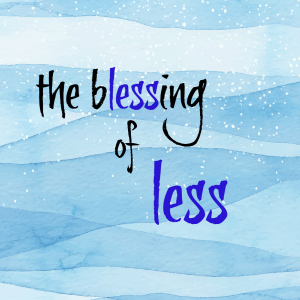journey: shelter in place
 The sky looked doubtful; the weatherman had forecast rain. Should I go or shelter in place? I glanced at the sky and decided to chance a walk anyway. I left the house and kept a watchful eye on the darkening sky.
The sky looked doubtful; the weatherman had forecast rain. Should I go or shelter in place? I glanced at the sky and decided to chance a walk anyway. I left the house and kept a watchful eye on the darkening sky.
drip. drip. drip.
Half way through my walk the rain began to fall. However, what started as a light sprinkle soon evolved into a summer shower. Up ahead I saw a dry spot in the road. An overhang of trees offered protection from the rain. As I hurried to the dry spot, I thanked God for providing a shelter in the storm.
shelter in place
The rain became heavier. As the heavens opened up, I was tempted to leave my safe haven and make a run for home. I considered my options, shelter or run. If I left my leafy shelter I would meet the full force of the storm head on. Despite the downpour, I was barely wet. My leafy shelter protected me from the worst of rain. I was still in the storm but protected from the storm. I decided to stay put and ride it out.
shelter in Him
Life can be stormy. Often our first reaction to storms is to run. But God gives us opportunity to take Him up on His promise to work all things for our good. If we shelter in Him, He decides what touches us, what gets through the leaves. Instead of dashing out into the storm, we need to shelter in place—in His Presence.
( Note: Even if we do run, God still has a plan to bring us back to Him)
Bible study
For the remainder of today’s Bible study we are going to read about a family who decided not to shelter in place but to run in the face of a storm. Get your Bible journal and a pen.
Let’s take a moment to pray.
Dearest Father, please open our hearts to your word and teach us Your truths. Help us to shelter in You during the storms of life. Amen.
Read Ruth 1:1-5.
In the days when the judges judged, there was a famine in the land. A certain man of Bethlehem Judah went to live in the country of Moab with his wife and his two sons. 2 The name of the man was Elimelech, and the name of his wife Naomi. The names of his two sons were Mahlon and Chilion, Ephrathites of Bethlehem Judah. They came into the country of Moab and lived there. 3 Elimelech, Naomi’s husband, died; and she was left with her two sons. 4 They took for themselves wives of the women of Moab. The name of the one was Orpah, and the name of the other was Ruth. They lived there about ten years. 5 Mahlon and Chilion both died, and the woman was bereaved of her two children and of her husband.
According to these verses who was leaving Bethlehem?
Why were they leaving Bethlehem?
Who joined Elimelech’s family after they reached Moab?
Reread Ruth 1:1 and fill in the missing information:
Now it came to pass _________________, there was a famine in the land.
The phrase when judges ruled refers to a time period from the death of Joshua to the start of the reign of King Saul. It was a time of chaos, idolatry and disobedience in the land of Israel. To get a little taste of this time when the judges ruled, read Judges 2:10-11
10 After all that generation were gathered to their fathers, another generation arose after them who didn’t know Yahweh, nor the work which he had done for Israel. 11 The children of Israel did that which was evil in Yahweh’s sight, and served the Baals.
Focus on verse 10.
Why do you think the generation that lived after Joshua did not know the Lord, nor the work which He had done for Israel? (See Deut. 6:5-9 for a hint!)
train them up
The importance of training our children in the Lord can hardly be over-stressed. As parents/teachers/mentors we have the incredible opportunity to impact not just the next generation but several generations to come. The choice is ours; shall we leave a legacy of faith or famine?
According to Ruth 1:1 what was in the land?
The famine was an outward sign of an inward condition of the heart.
Where were Elimelech and his family dwelling at the time of the famine (Ruth 1:1)?
In this present age, the idea of moving to another state or country is not unusual. Most people would quickly relocate to provide for their families when faced with hardship. However, moving was not an acceptable option for the Hebrew people. For the people of Israel, to move outside of Israel was to leave the Presence of God. As New Testament believers we have the privilege of God’s Presence in us. When we accept Christ as our Savior we are indwelt forever by His Holy Spirit.
Amos 8:11 warns of another more dangerous type of famine. What is it?
How can we avoid this type of famine?
From time to time I have experienced seasons of famine in my life (a famine of relationship, a famine of peace, a famine of hope). How about you?
The key to thriving during a season of famine is not running or moving but sheltering in place, in God’s Presence and in His Word.
The first step of your journey with Jesus is to stop running and shelter in place.
How can you shelter in place with Jesus during this season of life?
What message does have for you while you shelter with Him?
Please leave a comment in the reply section below. I’d love to chat with you!God bless!
all rights reserved. copyright 2020




 named Zacharias, of the division of Abijah. His wife was of the daughters of Aaron, and her name was Elizabeth.
named Zacharias, of the division of Abijah. His wife was of the daughters of Aaron, and her name was Elizabeth.  Smooth, hard, precious drops of life, scattered to the wind.The sower puts his hand in, draws it out and releases another handful of hope. He watches as they arc through the air and rains down on the barren ground. Step, release, scatter. Planting for the future. He raises dust with each step but it goes unnoticed as the sower sees only the fields of green.
Smooth, hard, precious drops of life, scattered to the wind.The sower puts his hand in, draws it out and releases another handful of hope. He watches as they arc through the air and rains down on the barren ground. Step, release, scatter. Planting for the future. He raises dust with each step but it goes unnoticed as the sower sees only the fields of green.